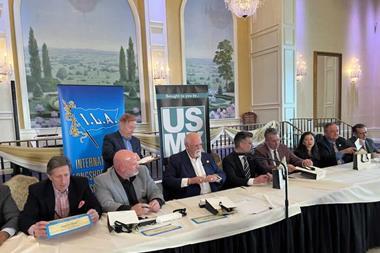Continuing our celebrations ahead of the 10th Automotive Logistics India conference on November 8th-10th, we look back at a journalist's adventures and activism aboard the nation's car carriers.
 About six years ago, our intrepid India correspondent, Ramesh Kumar, set off on a defining journey – one that would change not only his and many of our readers’ perspectives on the Indian trucking industry, but which arguably changed the journalist’s life as well.
About six years ago, our intrepid India correspondent, Ramesh Kumar, set off on a defining journey – one that would change not only his and many of our readers’ perspectives on the Indian trucking industry, but which arguably changed the journalist’s life as well.
His nearly 3,000km, eight-day journey aboard a Mercurio Pallia car carrier accompanying two drivers on a delivery run from Chennai, in the south of India, to Gurgaon, near New Delhi, documented the tough conditions, poor infrastructure and dangers of trucking vehicles across India. In excerpts from his travel diary, Kumar gives insights into the operations and handling techniques, to the lack of proper roadside facilities for drivers, as well as the prevalence and dangers of the commercial sex trade at many truck stops. In just one journey, he encountered his fair share of equipment issues and camels along the way.
Read the full story in our archives here.
The story also exposed corruption in the logistics sector. As if drivers having to contend with potential thieves and violence on their journeys were not enough, they also consistently faced a different threat across the country’s state borders and crosschecks: officials demanding bribes and payouts. While such practices have been far from unknown across the roads of India and many other countries since, the brazen way in which such sums were demanded still shocks.
Kumar, in his mid-50s at the time of the journey, is irascible and energetic – the text exchanges with his wife alone concerning his health (and sanity) make the story worth reading. What’s more, the road trip was just the first in what would become a career-defining crusade for the Delhi-based journalist. He would undertake many dozens of further trips, publishing articles and books about the experiences and campaigning actively to raise awareness in the Indian government and among carmakers and get them to take action. In 2013 he founded a trust, the KRK Foundation, dedicated to improving driver standards.
He has also spoken vocally at Automotive Logistics India conferences over the years, confronting trucking owners, manufacturers and regulators. Many listened, and spoke of their emphasis to train drivers and provide decent facilities and conditions for them.
That is not to say that there isn’t a long way to go in further improving safety, operations and equipment across Indian roads, both for general freight and for moving finished vehicles. But Automotive Logistics has been glad to provide Ramesh Kumar and others in the sector with a platform to discuss such issues further.
Join Indian road carriers, OEMs, government officials and dozens of other companies in Gurgaon for the latest insight into the logistics market in India.
Read part 1 of our retrospective on Tata Motors here.
Read part 2 on Maruti Suzuki here.

























![Global[1]](https://d3n5uof8vony13.cloudfront.net/Pictures/web/a/d/s/global1_726550.svgz)









